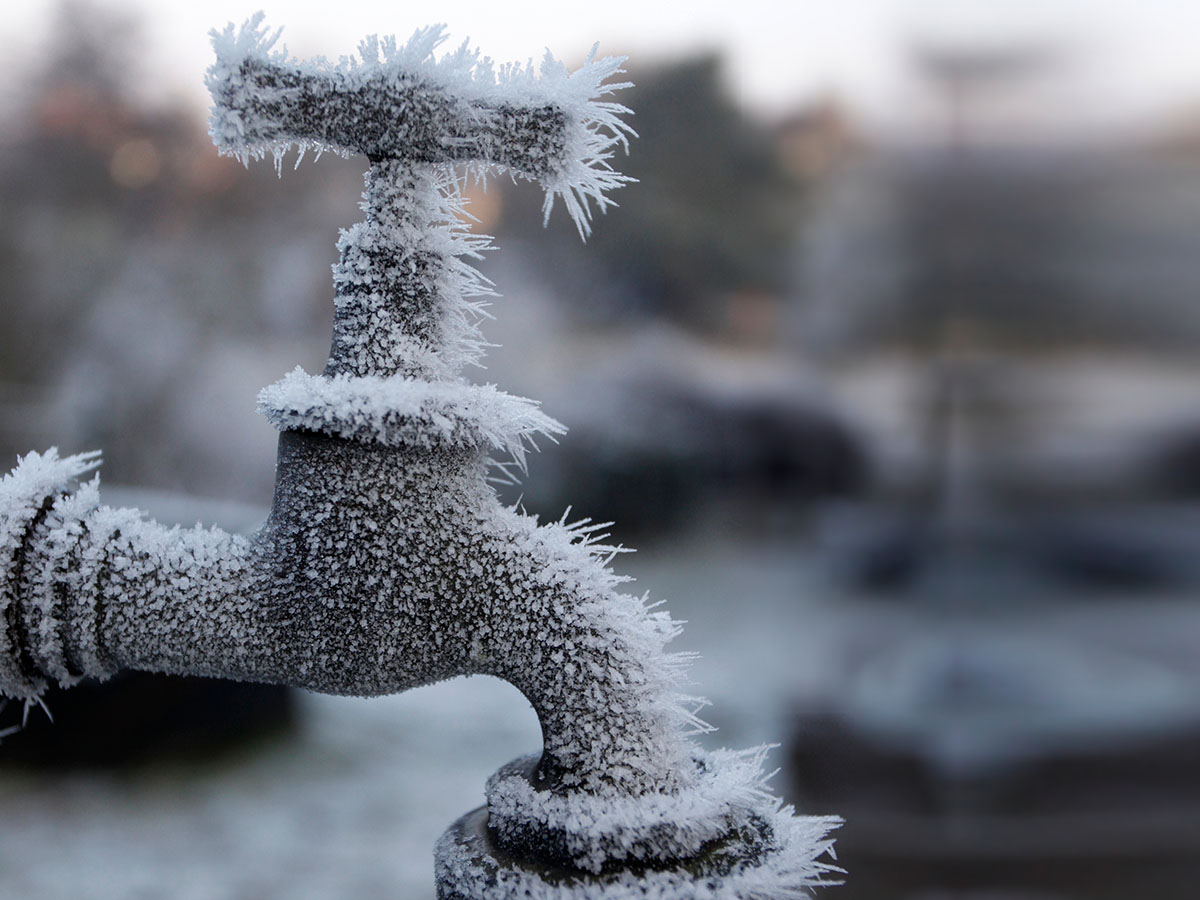Crucial Advice to Protect Against Frozen Pipes in Cold Weather
Crucial Advice to Protect Against Frozen Pipes in Cold Weather
Blog Article
This post on the next paragraphs in relation to How To Avoid Freezing Pipes is fairly enjoyable. You should look it over.

Winter can wreak havoc on your plumbing, specifically by freezing pipes. Here's exactly how to stop it from occurring and what to do if it does.
Introduction
As temperature levels decline, the danger of icy pipes increases, potentially leading to costly repairs and water damages. Understanding just how to stop icy pipes is vital for house owners in chilly climates.
Avoidance Tips
Insulating vulnerable pipelines
Wrap pipes in insulation sleeves or use heat tape to protect them from freezing temperature levels. Concentrate on pipes in unheated or outside locations of the home.
Home heating methods
Keep indoor areas appropriately heated up, specifically areas with pipes. Open cupboard doors to enable cozy air to flow around pipes under sinks.
Exactly how to recognize frozen pipes
Seek decreased water flow from taps, uncommon odors or noises from pipelines, and visible frost on subjected pipelines.
Long-Term Solutions
Structural changes
Consider rerouting pipes away from outside wall surfaces or unheated locations. Include additional insulation to attics, basements, and crawl spaces.
Updating insulation
Buy top quality insulation for pipes, attic rooms, and wall surfaces. Correct insulation aids keep regular temperature levels and reduces the threat of icy pipes.
Safeguarding Outdoor Pipes
Yard hose pipes and outdoor faucets
Separate and drain yard hose pipes before winter. Install frost-proof spigots or cover outside faucets with protected caps.
Comprehending Icy Pipelines
What causes pipelines to freeze?
Pipes freeze when exposed to temperature levels below 32 ° F (0 ° C) for prolonged periods. As water inside the pipelines ices up, it increases, putting pressure on the pipe walls and possibly creating them to rupture.
Risks and damages
Frozen pipelines can result in water interruptions, residential property damage, and costly fixings. Ruptured pipes can flooding homes and cause substantial architectural damages.
Indications of Frozen Piping
Identifying frozen pipes early can prevent them from bursting.
What to Do If Your Pipelines Freeze
Immediate activities to take
If you think frozen pipes, keep taps available to relieve stress as the ice thaws. Make use of a hairdryer or towels taken in warm water to thaw pipes gradually.
Final thought
Stopping frozen pipelines needs positive steps and quick reactions. By understanding the reasons, indications, and safety nets, property owners can protect their plumbing during winter.
6 Proven Ways to Prevent Frozen Pipes and Protect Your Home
Disconnect and Drain Garden Hoses
Before winter arrives, start by disconnecting your garden hoses and draining any remaining water. Close the shut-off valves that supply outdoor hose bibs and leave the outdoor faucet open to allow any residual water to drain. For extra protection, consider using faucet covers throughout the colder months. It’s also important to drain water from any sprinkler supply lines following the manufacturer’s directions.
Insulate Exposed Pipes
Insulating your pipes is an effective way to prevent freezing. Pipe insulation is readily available at home improvement stores and is relatively inexpensive. Pay close attention to pipes in unheated areas such as the attic, basement, crawl spaces, or garage. Apply foam insulation generously to create a buffer against the cold. You can also wrap your pipes in heat tape or thermostat-controlled heat cables for added warmth.
Seal Air Leaks
Inspect your home for any cracks or openings that could let in cold air. Seal any holes around the piping in interior or exterior walls, as well as the sill plates where your home rests on its foundation. Additionally, make sure to keep your garage door closed unless you’re entering or exiting. Leaving it open creates a significant air leak that can lead to frozen pipes.
Allow Warm Air Circulation
During cold snaps, it’s essential to allow warm air to circulate evenly throughout your home. Leave interior doors ajar to promote better airflow. Open kitchen and bathroom cabinets to help distribute heat consistently around the rooms. If you have small children or pets, be sure to remove any household chemicals or potentially harmful cleaners from open cabinets for safety.
Let Faucets Drip
A small trickle of water can make a big difference in preventing ice formation inside your pipes. When temperatures drop significantly, start a drip of water from all faucets served by exposed pipes. This continuous flow helps prevent the water from freezing. Additionally, running a few faucets slightly can relieve pressure inside the pipes, reducing the chances of a rupture if the water inside does freeze.
https://choateshvac.com/6-proven-ways-to-prevent-frozen-pipes-and-protect-your-home/

I discovered that review about How to prepare your home plumbing for winter weather while doing research the search engines. Are you aware of somebody who is truly interested in the topic? Do not hesitate to share it. Thanks a lot for taking the time to read it.
Phone Report this page